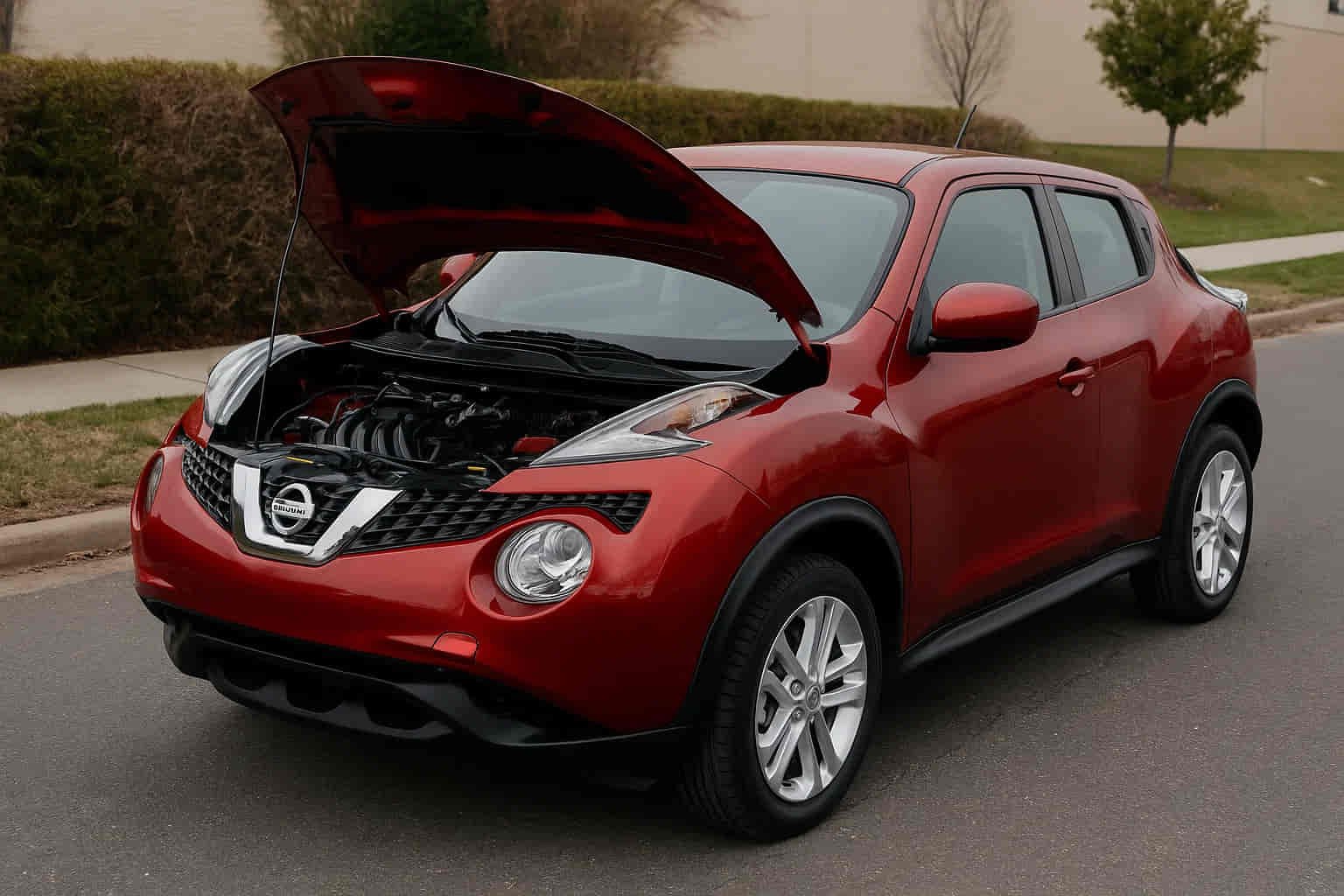When it comes to buying or owning a compact SUV, few things are more frustrating than unexpected mechanical failures. For Nissan Juke owners, one of the most common concerns revolves around transmission problems—particularly with the CVT (Continuously Variable Transmission). Drivers often report jerky acceleration, whining noises, or even complete transmission failure that leaves them with repair bills running into thousands of dollars. These issues have fueled countless discussions in owner forums, raised questions about long-term reliability, and left many people wondering if the Nissan Juke is truly worth keeping on the road.
The reality is that Nissan Juke transmission problems are not just random incidents; they follow certain patterns. From overheating during city driving to premature wear of internal components, the underlying causes are well documented. But the good news is that with the right knowledge, you can spot the early symptoms, understand what’s happening under the hood, and even take preventive steps before the situation turns into a costly breakdown.
In this guide, we’ll break down the most common causes of transmission trouble, the telltale signs you should never ignore, and the solutions that can save you both money and stress.
Causes of Nissan Juke Transmission Problems
Understanding why the Nissan Juke develops transmission issues begins with the type of gearbox it uses. Most models are equipped with a CVT, or Continuously Variable Transmission, which was designed to deliver smoother acceleration and better fuel efficiency compared to traditional automatics. In reality, however, this system has shown weaknesses that many owners have come to know all too well.
One of the leading causes is overheating. The Juke’s CVT is particularly sensitive to stop-and-go traffic and extended high-speed driving. Without proper cooling, the internal belts and pulleys start to degrade, leading to jerks and slips that worsen over time. Closely tied to this problem is the condition of the transmission fluid. When the fluid breaks down or the wrong type is used during maintenance, lubrication drops significantly, and the gearbox can no longer operate smoothly.
Mechanical wear is another factor that becomes noticeable once the vehicle crosses 80,000 to 100,000 miles. The steel belt inside the CVT, constantly under tension, can stretch or develop cracks. Sensors and software that manage gear ratios sometimes fail as well, triggering warning lights or limp mode. All of these issues stem from the same underlying truth: the Nissan Juke’s transmission is more complex and fragile than many drivers expect, and once early problems appear, they rarely fix themselves without intervention.
Symptoms of Nissan Juke Transmission Problems
For most owners, transmission trouble doesn’t begin with a sudden breakdown—it starts with subtle warning signs that gradually become impossible to ignore. One of the earliest and most frustrating symptoms is hesitation during acceleration. Instead of responding smoothly when you press the gas pedal, the Nissan Juke may shudder or feel like it is struggling to find the right gear. This lag not only affects drivability but also raises safety concerns, especially when merging onto highways.
Strange noises are another common indicator. A high-pitched whining or grinding sound that appears while the car is in motion often signals that the CVT’s internal components are under abnormal stress. In some cases, drivers report a rhythmic humming that becomes louder the longer they drive, a classic sign of transmission fluid losing its protective qualities.
Dashboard alerts frequently accompany these physical changes. The Check Engine light or a specific transmission warning can appear, sometimes in combination with the vehicle entering “limp mode,” where speed and power are severely restricted. Some owners also notice that their fuel economy begins to decline, as the gearbox struggles to maintain efficient power delivery.
Ignoring these symptoms usually makes the problem worse. What begins as a small jerk or a faint noise can quickly evolve into slipping gears or complete transmission failure. Recognizing the signs early gives you the chance to intervene before repair costs escalate into thousands of dollars.
Fixes for Nissan Juke Transmission Problems
When transmission issues appear, many Nissan Juke owners find themselves facing a difficult decision: repair, rebuild, or replace. The right choice often depends on how early the problem is detected. For minor issues, such as rough shifting or overheating during long drives, something as simple as replacing the transmission fluid can make a noticeable difference. Regular fluid changes with the manufacturer-recommended type help restore smooth operation and prevent premature wear, yet this step is often overlooked until the damage has already progressed.
In other cases, the solution may involve updating the software that controls the CVT. Nissan has released technical service bulletins addressing problems with the Transmission Control Module (TCM), and a simple reprogramming at the dealership can resolve hesitation or erratic behavior. For owners who experience grinding noises or slipping under load, the fix usually requires replacing worn components like pulleys or clutch packs. While less expensive than a full replacement, these partial repairs may only extend the life of the transmission for a limited time.
Unfortunately, once the gearbox suffers major internal damage, replacement becomes the only viable option. A brand-new CVT can cost several thousand dollars, and even a rebuilt unit carries a significant price tag. This is why preventive care—avoiding aggressive driving, keeping the cooling system in top condition, and performing timely maintenance—is so critical. Acting early can turn a potentially devastating expense into a manageable repair, saving both money and frustration in the long run.
Costs and Warranty for Nissan Juke Transmission Repairs
One of the biggest shocks for Nissan Juke owners dealing with transmission problems is the repair bill. Minor fixes, such as changing the CVT fluid or replacing sensors, usually fall in the range of a few hundred dollars. These jobs are relatively affordable and can sometimes restore normal performance, especially if the issue is caught early. But once the damage moves beyond surface-level repairs, the numbers escalate quickly.
The cost of rebuilding or replacing a Nissan Juke transmission often runs between $3,000 and $5,000 in the United States, and prices in the UK or Europe are not far behind. Labor charges, diagnostic fees, and the limited availability of replacement parts can push the total even higher. For many owners, this creates a painful dilemma: invest heavily in a car that may continue to have issues, or cut losses and trade it in.
Warranty coverage offers some relief, but it is not always straightforward. Nissan extended the warranty for certain CVT-equipped models after widespread complaints, yet coverage depends on the production year and mileage. Some recalls and service campaigns have been issued, addressing overheating and software problems, but not every vehicle qualifies. Owners who are out of warranty often find themselves facing the full cost of repairs, which is why so many report frustration on consumer forums.
Ultimately, the financial impact of Nissan Juke transmission problems highlights the importance of proactive maintenance and quick response to early symptoms. Acting sooner rather than later can mean the difference between a manageable service bill and a complete replacement.
Owner Experiences with Nissan Juke Transmission Problems
Behind every technical explanation lies the real-life stories of drivers who deal with these issues daily. For many Nissan Juke owners, transmission trouble often appears earlier than expected, sometimes as soon as 60,000 to 80,000 miles. A common pattern shared on forums like CarComplaints and Reddit is the sudden onset of whining noises, followed by jerking during acceleration and, in the worst cases, complete failure that leaves the car stranded.
One driver in California described how their Juke began to hesitate when pulling away from stoplights, only to end up needing a full transmission replacement just a few months later. Another owner in the UK noted that their dealership initially blamed driving habits before admitting that the CVT unit itself had worn out prematurely. Stories like these are echoed across online communities, where frustration often centers not only on the high repair costs but also on the feeling that the problems were inevitable.
That said, not every experience is negative. Some long-term owners report driving their Juke past 150,000 miles with no major transmission issues, largely thanks to consistent fluid changes and careful driving. These cases, though less common, show that preventive maintenance can make a significant difference. Still, the overwhelming trend among reports is that the CVT in the Nissan Juke demands more attention and carries more risk than most drivers expect when they first buy the car.
Conclusion
Transmission issues in the Nissan Juke are more than just an inconvenience; they represent one of the most significant factors shaping the car’s long-term reputation. From overheating and fluid breakdown to mechanical wear and electronic faults, the underlying causes of failure are well documented, and the symptoms—from jerky acceleration to strange noises—are easy to recognize once you know what to look for. The challenge lies in how owners respond: ignore the warning signs, and the result is often a repair bill that can rival the value of the vehicle itself.
Still, the situation is not without hope. Regular maintenance, timely fluid changes, and careful driving habits can extend the lifespan of the CVT and help prevent sudden breakdowns. For those already facing costly repairs, understanding your warranty options and exploring recall eligibility may ease the financial burden.
At the end of the day, Nissan Juke transmission problems remind us of the delicate balance between advanced technology and everyday reliability. Have you experienced similar issues with your Juke, or found effective ways to keep the transmission running smoothly? Share your story below—the more owners speak up, the clearer the picture becomes for everyone considering this compact SUV.

